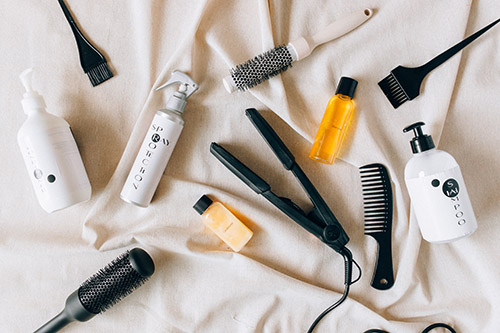Beyond the products you sell, there are specific risks involved in running a physical store and an e-commerce store. Here’s some specific advice to help you choose the insurance policies that are right for you.
Retail Store Owners:
For retailers who own (or rent) a physical store, you’ll need comprehensive coverage to cover your property, employees and general business liability risks. It’s usually required to have General Liability and Commercial Property Insurance. We’ll go into the details of these two coverages and provide info about several other policies that can provide further protection from claims and lawsuits.
Your Commercial General Liability insurance may cover your business in the event of a claim due to third-party bodily injury or property damage. For example, if a customer slips on ice directly in front of your store, CGL may cover the claim for bodily injury.
Commercial Property Insurance could cover your retail store and its contents (including stock and inventory) from insured risks that occur beyond your control. For example, if a storm caused your store to flood, destroying a large amount of stock, Commercial Property Insurance may provide financial coverage to replace the damaged property. Commercial Property Insurance often includes business interruption coverage (also called Business Income Coverage) that provides reimbursement for net income that’s lost following an insured event. For example, if the flood that destroyed your stock meant you had to close for a few days to repair and replace your property, Business Income Coverage could provide financial reimbursement.
Product Liability Insurance covers third-party injuries or property damage that’s caused by defective products you manufacture, sell, or distribute. For example, if you sell a vacuum cleaner to a customer and they claim it caused a house fire when plugged in, Product Liability Insurance could cover you if they decide to sue.
Finally, if you have an e-commerce site also, or you use a POS system to store customer’s data (e.g., financial information or their addresses), it’s your legal obligation to protect their data. Cyber Insurance covers costs like legal fees associated with cyber hacks or other security compromises that involve your technology systems and data.
Suggested Coverage:
- Commercial General Liability Insurance
- Commercial Property Insurance
- Business Interruption Insurance
- Product Liability Insurance
- Cyber Liability Insurance
Online Retail and E-commerce:
Due to the rising popularity of online shopping, many businesses thrive solely on digital commerce. Even without a brick-and-mortar establishment, it is surprising to find several similarities in the coverage provided compared to traditional retail stores.
Whether you hold your stock in a location or you simply have a home office, it’s important to have Commercial Property Insurance. It’s a common misconception that business-related activities that occur at home can be covered through your homeowner policy, but the coverage is often inadequate. Commercial Property Insurance could cover your home office or business location, and your stock from insured risks that occur beyond your control, such as a fire, flood or theft. Commercial Property Insurance often includes Business Income Coverage which can provide reimbursement for income that’s lost following an insured event. For example, if a house fire destroyed your home office, Business Income Coverage could provide financial reimbursement for the time it takes you to get back up and running.
Cyber Insurance is one of the most important coverages for e-commerce businesses. Any customer browsing or putting their personal details into your site expects you to keep their data to be secure. Cyber Insurance covers costs like legal fees associated with cyber hacks or other security compromises that involves your technology and customer data.
Product Liability Insurance is important for e-commerce and drop-ship businesses, particularly when you’re not seeing the items you’re selling before they’re sent to the customer. Product Liability covers third-party injuries or property damage that’s caused by defective products you manufacture, sell, or distribute. For example, if you sell jewelry which is described as gold plated, but it gives an allergic reaction to a customer who’s alleging it’s not gold, Product Liability Insurance could cover you if they decide to sue for bodily injury.
Suggested Coverage:
- Commercial Property Insurance
- Business Interruption Insurance
- Product Liability Insurance
- Cyber Liability Insurance


